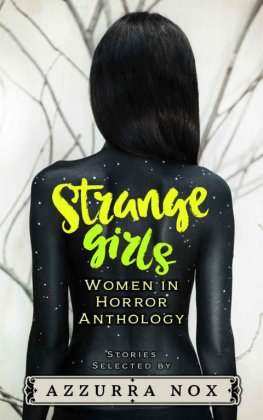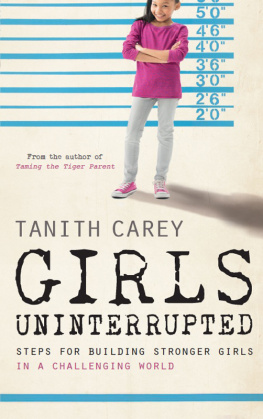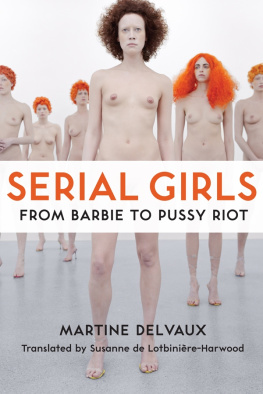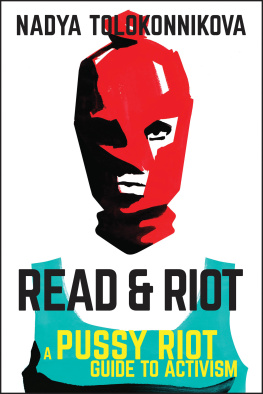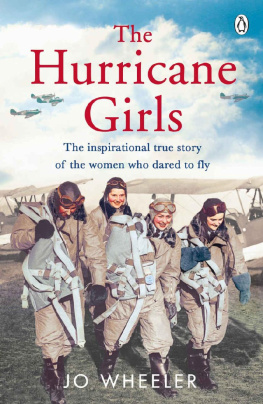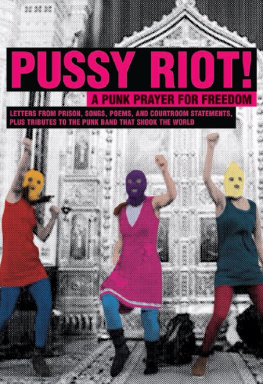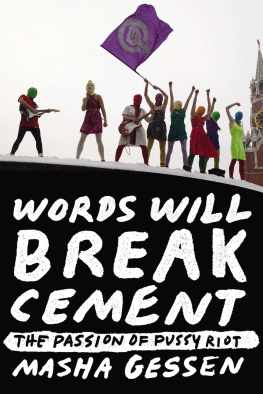GIRLS TO THE FRONT
SARA MARCUS
The True Story of the RIOT GRRRL Revolution

For my parents
and for all the rebels
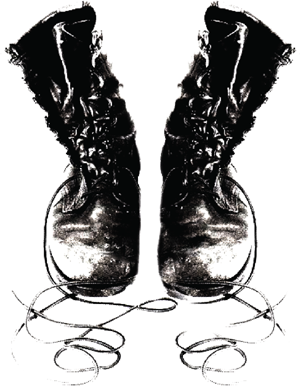
CONTENTS
(AN AUTHORS NOTE)
I missed out on the first few years of Riot Grrrl. In the summer of 1991, when girls not far from my suburban Maryland home were talking revolution, I was fourteen and going to theater camp. In our production of The Wiz, I played the good witch who comes in near the end and teaches Dorothy that she can find her way home if she just believes in herself. I wore a pink satin prom dress and I rode onto the stage enclosed in an eight-foot lotus made of plywood painted pinkish-lavender. The stagehands, all sixteen years old and crass, dubbed my floral conveyance the Vast Violet Vulva. Moments before my entrance every night, they shut me up inside the vulva and I stood there, awaiting my cue, encased in shadows tinted the same pink you see when your eyes are closed but theres a brightness just beyond your eyelids, waiting for you to open up and see.
That summer, a few weeks after the end of The Wiz, I went to a clothing store, a Ross Dress for Less. While my parents were out browsing the racks, I tried on shirts alone in the fitting room, and the attendant, a young man probably in his late teens, struck up a conversation. We chatted through my fitting rooms curtain and I answered his questions nonchalantly, tossing aside a T-shirt, considering a plaid button-down, and then he said something clearly indicatingwhether explicitly or implicitly, Im not sure, but his meaning was evidentthat he would like to fuck me.
I froze in the tiny cubicle, a rejected shirt encircling my forearms, my hands disappearing in the collar. I was certain that I would vomit, right there on the pin-strewn gray carpet.
Your parents are gone, he said. They cant hear us. Or was it They cant hear you?
The threat I heard in his voice may have been real. It may also have been a shadow cast by the threat I had been taught that all girls, particularly from age thirteen onward, faced from nearly any man at nearly any moment. Having ingested endless lessons of peril and caution, I was now living a worst-case scenario: trapped, topless, near a man who wanted to violate me, with only a canvas curtain separating me from the would-be attacker.
Perhaps I could vomit on him. I had heard that that sometimes worked.
Sara, did you find anything? My mother! Gratefully, I went out to meet her by the three-way mirror, hugging the shirts and their hangers to my body like clumsy armor.
I never came any closer to genuine sexual danger, but for years I braced myself for it, while marinating in shame over having somehow led the fitting-room attendant onhim, and also Peter, the tall drummer in marching band who shoved me against a locker in an empty hallway one morning and held me there for a horrifying minute, as if trying to decide what to do with me, before the footsteps of an approaching teacher set me free. I never told anybody about either incident. They both felt like they had been my fault.
I experienced female adolescence as a constant affront with calamity always loitering nearby, licking its lips, waiting for an opening. I spent the beginning of my teens miserable, alienated, and isolated. And I was sure I was the only one who felt this way.
It wasnt an unreasonable thing for me to believe. I had no social group, no pocket of belonging. I had quit the drama club after its vice president, a short jolly girl who wore patchouli and crushed velour, told me that our gentle kisses in the front seat of her moms Chevy Suburban went against Gods plan for her. Cut loose from the only tribe Id known, I drifted, too weird for the smart kids clique and too diligent for the purple-haired rebels who smoked cigarettes behind the school gym during lunch.
I began escaping to DC on weekends, boarding the Metro at its last stop in the suburbs. A brief eight-lane highway dead-ended at the Shady Grove stations treeless parking lot, and when my parents dropped me off, I loved finding the waiting trains, behemoths idling on their lethal-voltage rails. Their eventual lurch into motion felt exhilarating, like dropping off a cliff.
Back at school, I ate my lunch alone in an empty hallway, then retreated to the school library, where I napped in a corner between the books on feminism and the emergency exit. Just getting through each day was exhausting.
I was desperate for something that might save me, or help me save myself.
I first learned about Riot Grrrl in autumn 1992. I had just come home from another dispiriting day of tenth grade and I was standing at the kitchen table, sorting through the mail, when an article in the new issue of Newsweek grabbed both my arms and shook me. The piece, titled Revolution, Girl Style, opened with a scene of a girl standing up to a sexual harasser at school: Dont touch me or my friends! It went on to describe a nationwide network of teen feminists who came together to support one another, fight back against harassing classmates, and talk about everything from tuning guitar strings to coming out of the closet. The girls, according to this piece, were sexy, assertive, and loud. Although I wasnt sexy and didnt particularly want to be, I remembered that for a while in elementary school, and intermittently since then, I had been assertive and loud, and I missed being that girl.
I read the whole piece twice, not even bothering to sit down. It said the riot grrrls had recently held a convention in Washington, DC. Could this be true? There were girls in my area who might understand me?
When my mother came home and read the article, she remarked that the movement didnt seem like anything I would want to be involved in.
I had never wanted anything more in my life.
The riot grrrls were so near to me that I sometimes imagined I could smell their magenta hair dye. What if one of them went to my school? In the pre-Internet age, though, my search turned up only dead ends. Throughout tenth and eleventh grade, I scoured the Washington Post Style section, studied the Meetings classified ads in the City Paper, looked under Riot Grrrl in the DC phone book, and checked the bulletin board of the feminist bookstore downtown where I had begun to camp out on weekends, reading Alison Bechdel and Luce Irigaray. I uncovered no leads.
Still, the article had given me an idea. If I couldnt reach the riot grrrls, I would figure out how to be a feminist some other way. For a class project, I interviewed the National Organization for Womens chapter coordinator, who encouraged me to form a group at my high school. I did so immediately. The club attracted a dozen members and at least an equal number of antagonists, who conveyed their disapproval by defacing our bulletin board displays (FEMINISM: THE RADICAL NOTION THAT WOMEN ARE PEOPLE! became FEMINISM: RADICAL MEN PE E) and shouting Dykes! through the door of our meeting room as they sprinted down the hall.
Most of the clubs members were wary of conflict, so we played it safe, delivering a series of morning announcements for Womens History Month, organizing a self-defense workshop, and posting a conciliatory, pleading bulletin board message that read merely FEMINISM: ITS ABOUT CHOICES . But these actions didnt come close to addressing what I had felt in the fitting room at the Ross Dress for Less, nor what I felt when I read in the newspaper about restrictions on abortion, grants rescinded from gay and female artists, the gauntlet of Navy officers at the Tailhook convention in Vegas who stripped a teenage girl. And then there was the day a popular tenor came to choir practice wearing a T-shirt that said THE PERSON WEARING THIS SHIRT IS A POLICE OFFICER. JUST LIE DOWN AND DO WHATEVER THE NICE POLICE OFFICER TELLS you TO .
Next page

